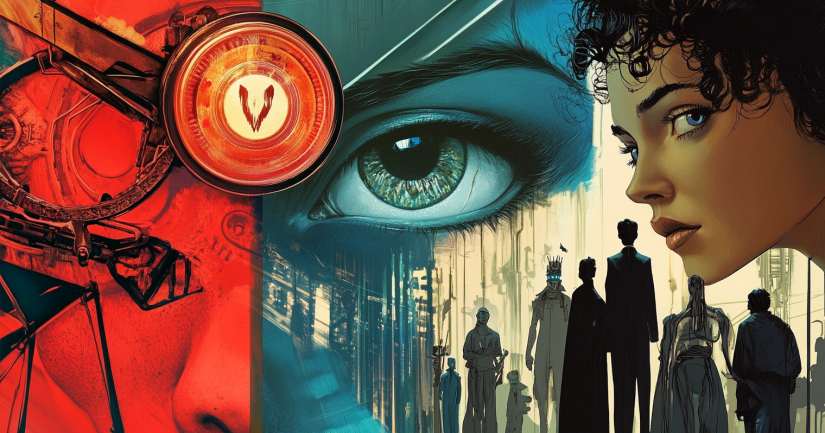
Dive into the roles of Huxley’s characters and find out how well you know them in the Brave New World Character Matching Quiz – Can You Identify Huxley’s Dystopian Figures? The Brave New World Character Matching Quiz will test your ability to match each character to their defining role, philosophy, and impact on the novel. Every character serves a specific function within Huxley’s dystopian vision. Some embrace the system, while others challenge its artificial stability. Each one reflects a different response to a world without individuality, deep emotions, or struggle.
Huxley introduces characters who either uphold or resist the World State’s control. This quiz will challenge your ability to connect each character to their beliefs, struggles, and ultimate fate. The Brave New World Character Matching Quiz will test your ability to identify how each character represents a key aspect of the novel’s dystopian critique.
Curious about how well you know the characters? Try the Which Brave New World Character Are You Quiz or sharpen your skills with the Brave New World Vocabulary Quiz.
Ready to Test Yourself? Start the Brave New World Character Matching Quiz
Who Are the Key Figures in Brave New World?
- John – Raised outside civilization, John believes in love, honor, and suffering. He idolizes the World State until he discovers its empty pleasures.
- Bernard Marx – An insecure Alpha, Bernard resents the system but still craves social validation. His desire for power weakens his rebellion.
- Helmholtz Watson – A gifted writer, Helmholtz rejects shallow entertainment and seeks true creative expression, making him a genuine intellectual dissenter.
- Lenina Crowne – A loyal citizen, Lenina follows World State norms but feels drawn to John’s intensity. She cannot comprehend his beliefs about love and sacrifice.
- Mustapha Mond – A World Controller, Mond understands both freedom and control. He chooses to suppress human complexity in favor of stability.
- Linda – John’s mother, Linda fails to reintegrate into the World State Reservations. She escapes reality through soma until her death.
- The Director (Thomas) – A strict leader, the Director preaches discipline and conformity. His past scandal with Linda leads to his public humiliation.
What Do These Characters Symbolize?
Each character represents a larger theme within the novel. This quiz will challenge you to match characters to the ideas they symbolize.
- Conformity vs. individuality – Some characters embrace the World State’s conditioning. Others seek freedom at great personal cost.
- The illusion of happiness – Many believe they live in a perfect world. The rebels realize their pleasure is empty.
- Rebellion and consequence – Those who challenge the system face exile or destruction. True independence proves impossible within this controlled society.
- The dangers of control – The World State eliminates love, pain, and ambition. In doing so, it removes everything that gives life meaning.
The Brave New World Character Matching Quiz will challenge you to connect each character to their role in exposing these themes.
Are You Ready to Take the Brave New World Character Matching Quiz?
Now that you’ve explored the novel’s central figures, their struggles, and the themes they represent, it’s time to test your knowledge! This Brave New World Character Matching Quiz will challenge you to correctly match each character to their defining traits, relationships, and philosophical conflicts. Can you successfully pair each figure with their fate and significance? Start the quiz now and find out!
Brave New World Quizzes: Explore Helmholtz’s Quest
Brave New World Characters – FAQ
Brave New World by Aldous Huxley features key characters like Bernard Marx, an Alpha Plus who wrestles with societal norms, and Lenina Crowne, a Beta worker involved with Bernard. Mustapha Mond, a World Controller, embodies State power. Helmholtz Watson, Bernard’s friend, also plays a vital role.
Bernard Marx, an Alpha Plus, feels alienated in the conformist World State due to his smaller stature and unorthodox views. His journey explores individuality and resistance, making him central to the narrative.
Lenina Crowne exemplifies the conditioned citizens of the World State. Her adherence to norms and relationship with Bernard underscore the conflict between human emotions and the State’s artificial happiness. Through Lenina, Huxley examines conformity and individuality suppression.
Mustapha Mond, a World Controller, represents ultimate authority. His discussions with John and Bernard reveal the rationale behind the World State’s policies. Mond challenges readers to consider societal stability’s costs and the sacrifices for control.
